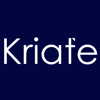Business Consulting for Real Estate Company
- Business Consulting Corporate Training & Coaching HR Consulting
- Confidential
- May - Aug. 2023
"They are easily accessible and ensure everyone is clear about the project."
- Real estate
- Chennai, India
- 51-200 Employees
- Online Review
- Verified
A real estate company hired Kriate Consultants to help with their leadership team. The team conducted workshops on leadership, identity, and strategic initiatives.
Kriate Consultants played a crucial role in ensuring the project's timely completion with well-defined IDP reports. Their transparent approach greatly facilitated the team's understanding and helped everyone grasp the program's objectives and their respective responsibilities.

